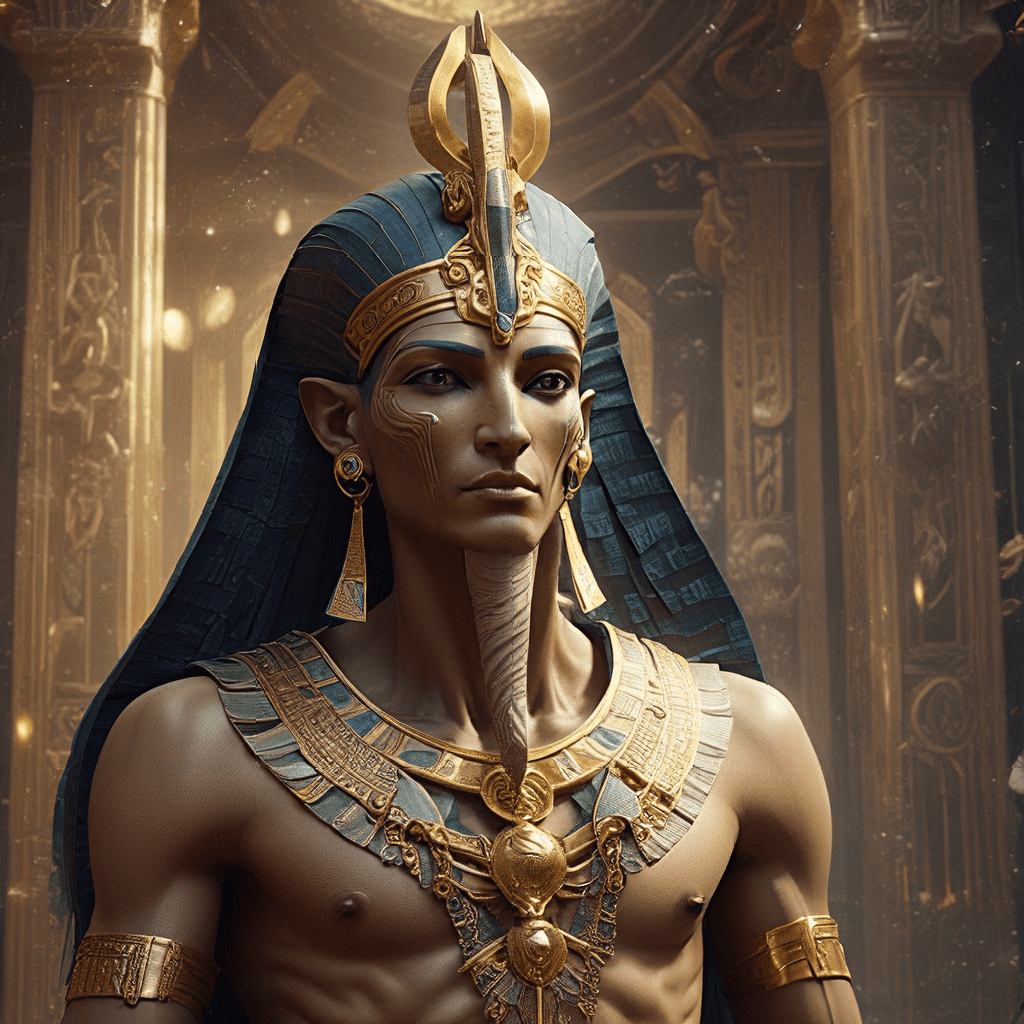## Thoth: The God of the Dead
I. Introduction: The Multifaceted Thoth
Thoth was a prominent and complex deity in ancient Egyptian mythology, known for his vast knowledge, powerful magic, and significant role in the afterlife. He was not solely the god of the dead, but a multifaceted figure associated with wisdom, writing, magic, and the moon. Thoth’s influence extended across various aspects of Egyptian life, from the creation of the world to the judgment of souls in the afterlife. His enduring presence in Egyptian culture reflects his immense importance and enduring legacy as a wise and powerful deity.
II. Origins and Iconography
Thoth’s origins are deeply intertwined with the sacred ibis bird, a creature revered for its intelligence and association with knowledge. Initially depicted as an ibis, Thoth gradually evolved into a human-headed deity with ibis features, often carrying a writing palette and stylus. The ibis, with its long beak and keen eyesight, symbolized intellect and the ability to perceive the hidden truths of the universe. This association further solidified Thoth’s role as the divine scribe, the keeper of knowledge, and the master of secrets.
III. Thoth as the Scribe of the Gods
Thoth’s primary role as the scribe of the gods solidified his position within the divine hierarchy. He was responsible for recording the decrees of the gods, ensuring that their pronouncements and decisions were documented for eternity. This function also extended to the creation of the world itself, as Thoth was credited with crafting the writing system and the fundamental principles that governed the universe. In divine court proceedings and judgment, Thoth’s presence was crucial. He meticulously documented the evidence and acted as a witness to the gods’ judgments, upholding justice and fairness in the celestial realm.
IV. Thoth’s Magic and Knowledge
Thoth’s mastery of magic was as renowned as his knowledge, and he was a master of spells, incantations, and mystical arts. His ability to control time and space was awe-inspiring, and he was believed to be able to manipulate the flow of events, bringing order and balance to the universe. His connection to the moon, a celestial body associated with cycles and change, further reinforced his association with knowledge, as he was seen as the embodiment of the eternal cycles of life, death, and rebirth.
V. Thoth and the Afterlife
Thoth’s role in the afterlife was crucial, as he participated in the Weighing of the Heart ceremony, a pivotal moment in the judgment of the deceased. When a soul entered the underworld, it was weighed against the feather of Maat, the goddess of truth and justice, to determine its worthiness for eternal life. Thoth, with his profound wisdom and knowledge, acted as the scribe, recording the results of the weighing. His presence ensured fairness and impartiality in the judgment process, offering guidance and protection to those who passed the test.
VI. Thoth and the Book of the Dead
The Book of the Dead, a collection of funerary texts containing spells, prayers, and rituals for the afterlife, was deeply connected to Thoth. He was not only believed to have created the text but also acted as a guide for the deceased, leading them through the perilous journey of the underworld. The text itself served as a source of wisdom and knowledge, offering guidance and hope to those who sought to navigate the afterlife. Thoth’s presence in the Book of the Dead solidified his role as a powerful protector and mentor, offering support and reassurance to those who faced the unknown.
VII. Thoth and Maat: The Goddess of Justice
Thoth’s collaboration with Maat, the goddess of justice, reflected their shared commitment to maintaining order and balance. Together they ensured fairness, truth, and righteousness in all aspects of life, both on earth and in the afterlife. Their partnership symbolized the interconnectedness of justice, knowledge, and the cosmic order. Through their collaboration, Thoth and Maat established the essential principles that governed the universe, ensuring harmony and balance in the divine realm.
VIII. Thoth’s Temple and Worship
The city of Hermopolis Magna, located in Upper Egypt, served as the primary center for the worship of Thoth. His magnificent temple stood as a testament to his enduring importance, attracting pilgrims and devotees from across the land. Throughout Egypt, Thoth was widely venerated, and his temples were found in numerous cities. Offerings and rituals dedicated to Thoth were common practices, and his wisdom, knowledge, and magic were invoked in daily life, from divination and healing to the pursuit of knowledge and enlightenment.
IX. Thoth’s Legacy
Thoth’s legacy as a wise and powerful deity endured long after the fall of ancient Egypt. His association with knowledge, writing, and magic continued to inspire generations of thinkers and scholars. His image and symbolism have been incorporated into various forms of art, literature, and philosophy, ensuring that his influence continues to resonate in the modern world.




